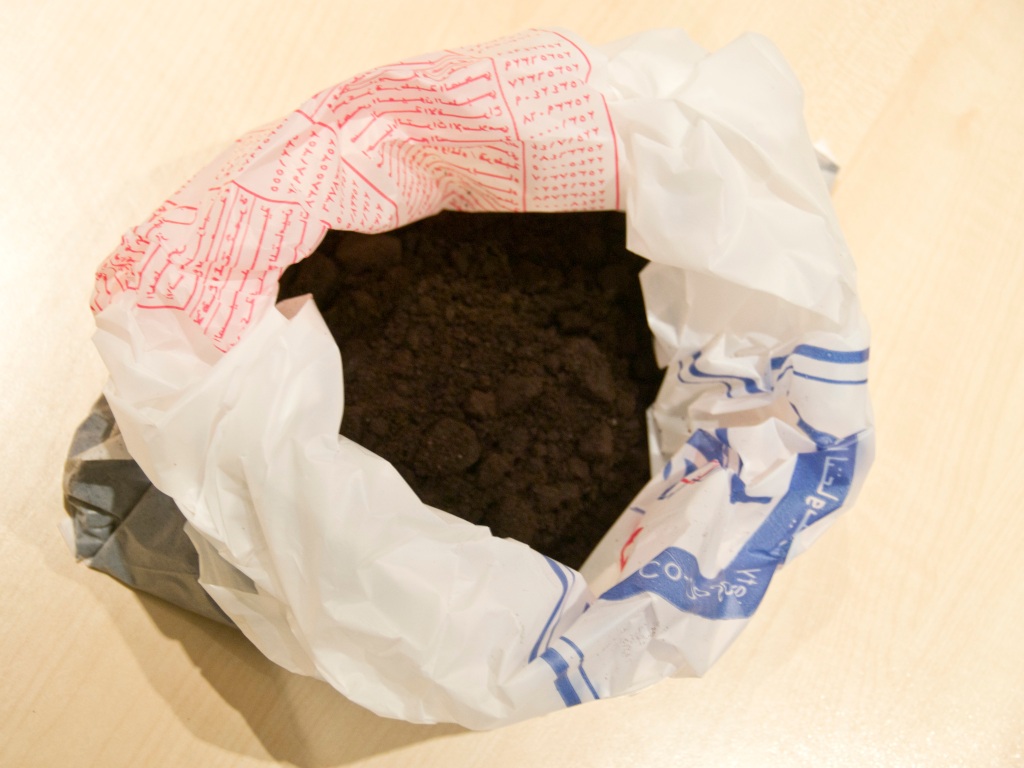After brewing coffee, coffee grounds are often tossed into the trash bin. Most people regard the group of squeezed coffee beans as worthless items. Coffee grounds are a fabulous source of organic matter right at your fingertips. In compost jargon, coffee grounds are a "green," meaning an item that is rich in nitrogen (yes, I know coffee grounds are brown. In your compost, they're green. Trust me.) Coffee grounds are approximately 1.45% nitrogen. They also contain magnesium, calcium, potassium, and other trace minerals.

[/caption] You can put the nitrogen rich grounds in your compost bin, or you can add it directly to your garden. The acidity of the grounds when placed on the surface of soil repels insects and pests so it kind of acts like an insecticidal mulch. The best thing about these rich coffee grounds is that they are absolutely free. If you don't ask for them, they're probably going to end up in the coffee shop's trash bags, making them heavier to carry after a long day. So you're kind of doing them a favor. I was ordering coffee from Caribou Coffee at Qurtuba co op, and when I asked for their coffee grounds, they happily emptied their machines and gave me their grounds of the day. You can ask for grounds anywhere fresh coffee is brewed. Gardeners all over the world swear by Starbucks' grounds, I'll be trying them soon.

 [/caption] You can put the nitrogen rich grounds in your compost bin, or you can add it directly to your garden. The acidity of the grounds when placed on the surface of soil repels insects and pests so it kind of acts like an insecticidal mulch. The best thing about these rich coffee grounds is that they are absolutely free. If you don't ask for them, they're probably going to end up in the coffee shop's trash bags, making them heavier to carry after a long day. So you're kind of doing them a favor. I was ordering coffee from Caribou Coffee at Qurtuba co op, and when I asked for their coffee grounds, they happily emptied their machines and gave me their grounds of the day. You can ask for grounds anywhere fresh coffee is brewed. Gardeners all over the world swear by Starbucks' grounds, I'll be trying them soon.
[/caption] You can put the nitrogen rich grounds in your compost bin, or you can add it directly to your garden. The acidity of the grounds when placed on the surface of soil repels insects and pests so it kind of acts like an insecticidal mulch. The best thing about these rich coffee grounds is that they are absolutely free. If you don't ask for them, they're probably going to end up in the coffee shop's trash bags, making them heavier to carry after a long day. So you're kind of doing them a favor. I was ordering coffee from Caribou Coffee at Qurtuba co op, and when I asked for their coffee grounds, they happily emptied their machines and gave me their grounds of the day. You can ask for grounds anywhere fresh coffee is brewed. Gardeners all over the world swear by Starbucks' grounds, I'll be trying them soon. 












